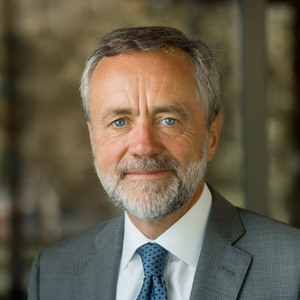My journey began in a blue-collar hard-scrabble community south of Boston. There my father was a preacher in a local church where people came to get the Word of God empowered by the Spirit of God.
The broken came on Sundays to the congregation my father shepherded. The church was called Glad Tidings. The “tidings” part took a while for me to understand, though we said the word frequently. The “glad” part I figured out. People who were sad got glad when they came to this downtown church and experienced the living Christ. On Sunday nights, my father invited to the altar those with woes. The altar was lined with Kleenex boxes.
I remember sad people coming forward at my father’s beckoning to kneel at the altar for “the anointing.” Without fail, each Sunday night I’d join my father as he laid his hands on these humbled parishioners and prayed Jesus over them. Fishermen and ship builders. Unemployed and aged. An occasional engineer or physician. Lonely men and mothers with children born “out of wedlock”— those words we said in hushed tones to keep things on the level of prayer and not gossip.
As they kneeled by the dozens at the altar, I would follow my father the preacher as he prayed fervently over each bowed head. He looked at their prayer-contorted, tear-moistened faces. I looked at their bent legs, careful to step over their calves as I followed him from sinner to sinner, each in God’s eyes a saint. God looked at their souls.
Early on I saw others whose life was hard until at the altar sadness became gladness. Slowly, I began to understand what “glad tidings” meant. There, at a church called “Glad Tidings” and with the gospel message proclaimed from the pulpit, people came to the altar to unburden their travails and find comfort and salvation while stooping to kneel.
I was a firsthand witness, even in kindergarten, to the gospel at work. In a Jesus way, my father saw the crowds and had compassion on them. And then the good reverend would give the redeemed a challenge out of Matthew 9, in the King James tongue. He was bilingual. “The harvest truly is plenteous, but the labourers are few,” Jesus said. “Pray ye therefore the Lord of the harvest, that he will send forth labourers into his harvest.”
Fast forward four and a half decades and light years of progress.
This text is still the same, though I quote it to our students from another version. “The harvest is plentiful but the workers are few. Ask the Lord of the harvest, therefore, to send out workers into his harvest field.” The translations have multiplied. The methods have changed. Technology has exploded. But brokenness remains. As do the Glad Tidings, a synonym for Good News.
What excites me as we are halfway through this academic year with our theme “From This Place: Proclaiming Good News in a Changing World,” is that our students are doing just that: proclaiming and serving Christ in their deeds and their words.
51¬Ð¿Ú students are not afraid to set loose their creativity and imagination on how God might use them to repair the breaches, as Isaiah writes. They don‚Äôt have to rely on the methods of the previous generation. They don‚Äôt worry if others criticize them for being outside the box. And they have eyes to see new helpless crowds on whom they‚Äôll have compassion ... crowds maybe others have overlooked.
And they do this through art or music or film or writing or in a new business venture. They proclaim the gospel through storytelling or scientific discovery, through apologetics and sound reason. They do this best through relationships, talking honestly with those who have yet to find the Way. Sometimes they’re unconventional and even provocative in their gospel witness.
Flannery O’Connor, the 20th century American author, was asked why she was so graphic in her accounts of sin and the Fall or so spectacular in her stories of grace and redemption. Here’s what she said:
When you can assume that your audience holds the same beliefs you do, you can relax a little and use more normal ways of talking to it; when you have to assume that it does not, then you have to make your vision apparent by shock — to the hard of hearing you shout, and for the almost blind you draw large and startling figures.
I’ve told our students several times this year, “Don’t be afraid to shake things up a little bit to make people aware of their need for Jesus, for the sake of the gospel.”
As a university, if we are intrinsically Christ-centered we must be intentionally Christ-proclaiming. We must think seriously about being — like Jesus — a voice of redemption in the middle of a crowded, needy, wounded world broken by sin. Jesus saw the crowds and had compassion on them.
Then he turned to his disciples who were looking at the same crowds, and he said, in essence, ‚ÄúSee them? You are a generation that can change the world by proclaiming Good News.‚Äù Jesus is exhorting us with these same words at 51¬Ð¿Ú today, as he has here since 1908. And students are still responding in obedience.
Barry H. Corey is the president of 51¬Ð¿Ú. Visit his office online at www.biola.edu/president, on Facebook at and on Twitter at .
 51¬Ð¿Ú
51¬Ð¿Ú
.jpg)

